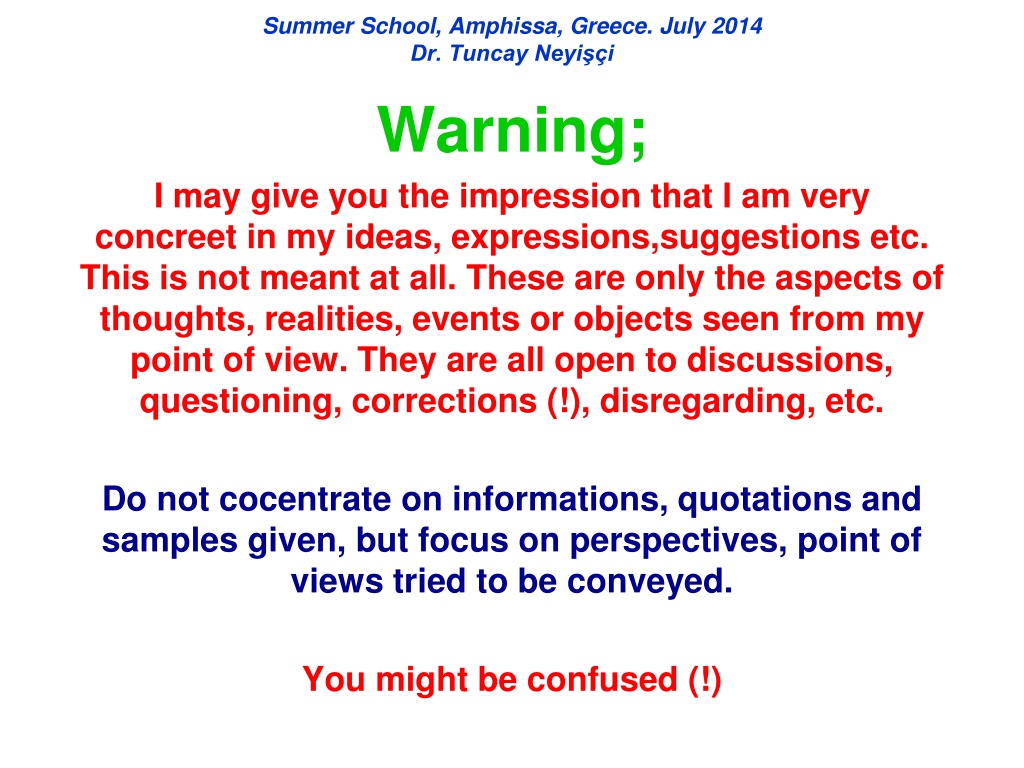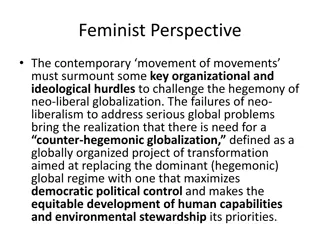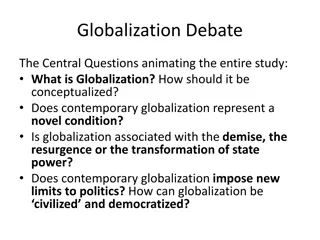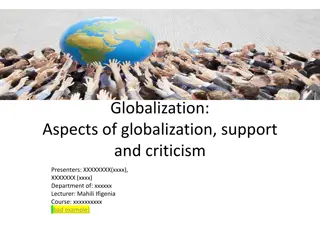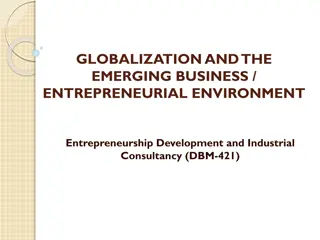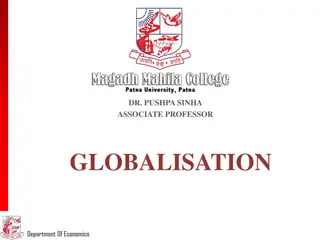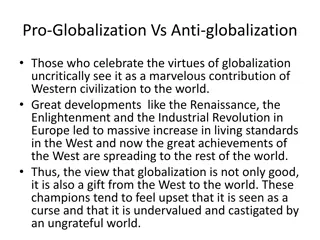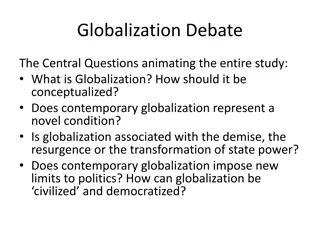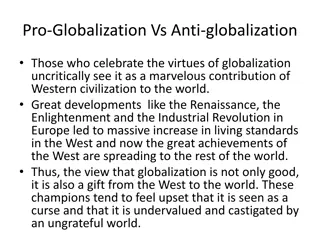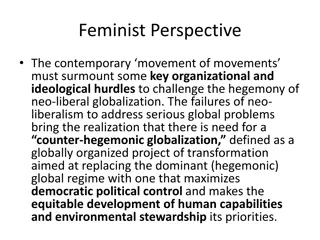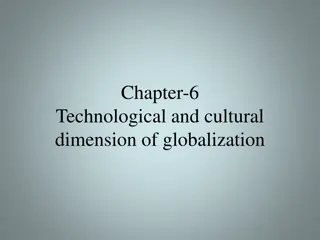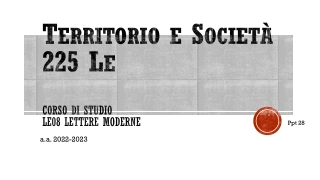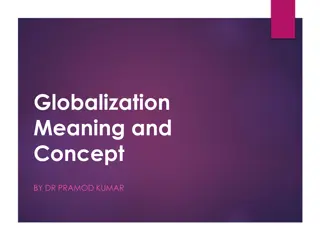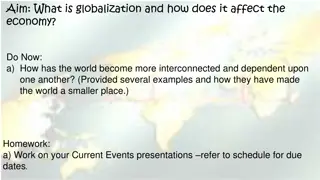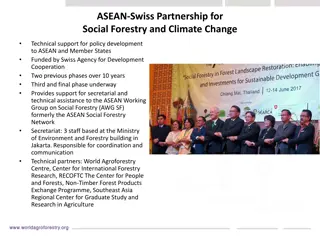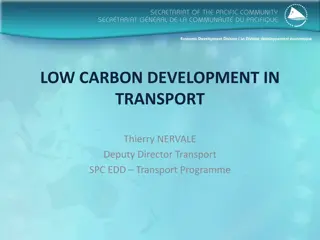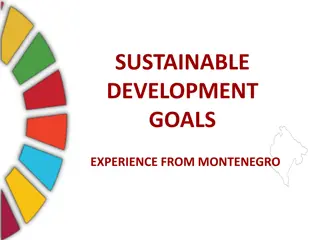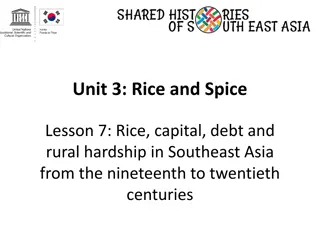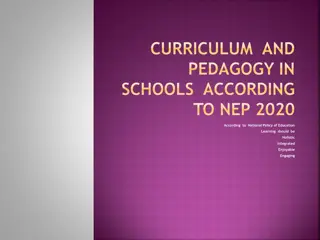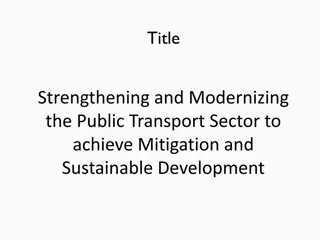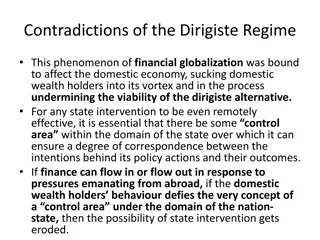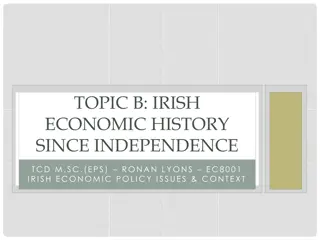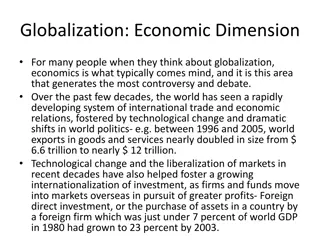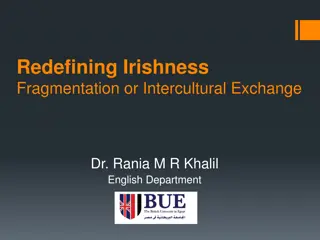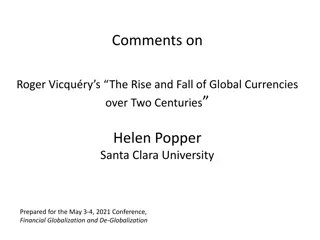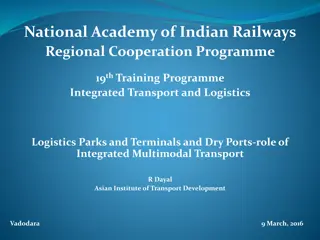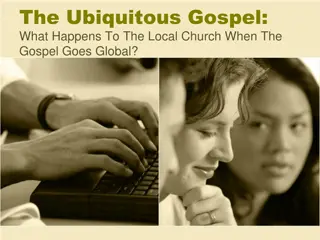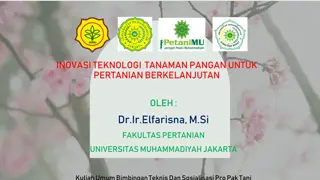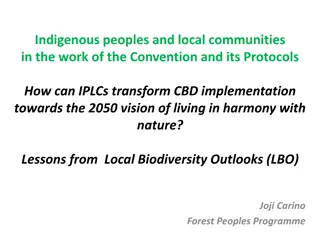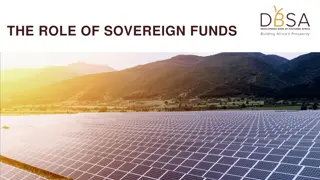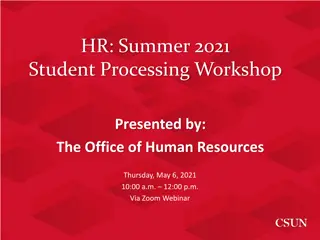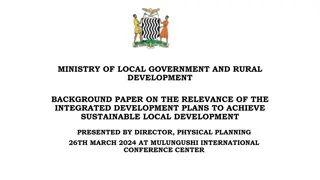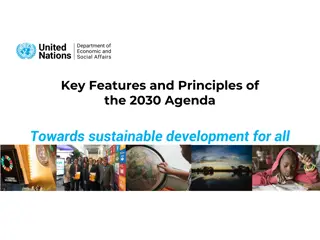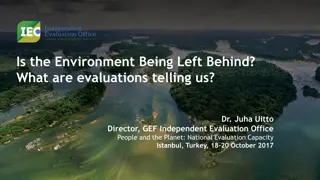Perspectives on Holistic Globalization and Sustainable Development from Summer School in Amphissa
Dr. Tuncay Neyi shares thought-provoking perspectives on various concepts including globalization, sustainability, education, and protected areas during a summer school in Amphissa, Greece in July 2014. His discussions range from systemic thinking to ecological-economic-cultural sustainability, emphasizing the need to care for planet Earth as a whole. The images associated with his ideas provide a unique lens through which to view our interconnected world and our roles within it.
Download Presentation

Please find below an Image/Link to download the presentation.
The content on the website is provided AS IS for your information and personal use only. It may not be sold, licensed, or shared on other websites without obtaining consent from the author. Download presentation by click this link. If you encounter any issues during the download, it is possible that the publisher has removed the file from their server.
E N D
Presentation Transcript
Summer School, Amphissa, Greece. July 2014 Dr. Tuncay Neyi i Warning; I may give you the impression that I am very concreet in my ideas, expressions,suggestions etc. This is not meant at all. These are only the aspects of thoughts, realities, events or objects seen from my point of view. They are all open to discussions, questioning, corrections (!), disregarding, etc. Do not cocentrate on informations, quotations and samples given, but focus on perspectives, point of views tried to be conveyed. You might be confused (!)
Summer School, Amphissa, Greece. July 2014 Dr. Tuncay Neyi i SCALING . How old am I? cyanobacteria How big am I? Ant My origine, neolithiic, rural-urban, prey-predator Where am I? Andromeda, electron, Everest -marianna pit, spaceship My senses, Inuit (eskimo), bird songs, tick Am I blind? Fredric Gugenheim gregory Am I different? Brain, technology What Am I doing as a scientist? Will it rain today? ?
Summer School, Amphissa, Greece. July 2014 Dr. Tuncay Neyi i CONCEPTS Globalisation holistik, systemic thinking Sustainability ecologic-economic-cultural, resources, generatios ahead Participation Earth Day, locals, from closest to farest. 1970 The purpose of ESD shoud not be to minimize the negative impact of human on nature but should be to maximize the positive impact of nature on human NGO +, - Environment environmental engineering Ecology Deep Ecology man is only a contituent of cosmos
Summer School, Amphissa, Greece. July 2014 Dr. Tuncay Neyi i What is in the air?
Summer School, Amphissa, Greece. July 2014 Dr. Tuncay Neyi i CONCEPTS DEVELOPMENT: evolution (cosmos evolve as an inseperable whole),problem is driving force, technical development/diversity, unemployment EDUCAT ON: learner centere? Or two sided, interactive, teachers learn-learners teach, key/musterkey, from closer to distant, rural/urban values PROTECTED AREAS: Isolation, fragmentation? We have to care for (protect) planet earth as a whole, carrying capasities (economic, ecologic, as well as cultural
Summer School, Amphissa, Greece. July 2014 Dr. Tuncay Neyi i CONCEPTS MED A: formating roles played yesterday reflected perfectly the global formating of media ECOLOG CAL FOOTPR NT: Turning issues into games? CULTURE ...
Summer School, Amphissa, Greece. July 2014 Dr. Tuncay Neyi i CONCEPTS Conservation Conservationist instrumental value Preservation Preservationist - isolation Environment environmentalist antropocentric, urban focuse Ecology Ecologist holistic, systemic thinking Protection Protected Area fallow deer, mountain goat/leopard, lion, tree, endemic species, Nature ? Natural ? Cities: Our natural habitat? Bringing nature in urban areas and schools
Summer School, Amphissa, Greece. July 2014 Dr. Tuncay Neyi i Conservation Ethics John Muir: Romantic-Trancendental Preservation Ethic. Nature is templethat is polluted by the economic activities of people Gilford Pinchot: Resource Conservation Ethic. Nature Consisted solely of natural resources and should be used to provide the greatest good for the greatest number of people for the longest time Aldo Leopold: Evolutionary-Ecological Land Ethic. Ecology is a new fusion point for all the sciences. The emergence of ecology has placed the econonic biologist in a peculiar dilemma; with one hand he points out the accumulated findings of his research for utility, or lack of utility, in this or that species; with the other he lifts the veil from a biota so complex, so conditioned by interwoven cooperations, that no man can say where utility begins or ends.
Summer School, Amphissa, Greece. July 2014 Dr. Tuncay Neyi i Which is more environmentally friendly? Glass? Plastic?
Summer School, Amphissa, Greece. July 2014 Dr. Tuncay Neyi i WHAT S ECOLOGY? WHAT S MANAGEMENT? s ecology an independent science? - transdisiplinary How it works? eco-centric approach vs antropo-centric approach biological evolution vs cultural evolution (freedom, democracy, interdependence) economic ecology / politic ecology : ecology of fear Management; The organization and coordination of the activities of a business in order to achieve defined objectives
Summer School, Amphissa, Greece. July 2014 Dr. Tuncay Neyi i CAUSES OF DEGRADAT ON Over population ECOLOG CAL ADAPTAT ON? Consumerism WOLF/SHEEP Economy having improper indicators MPROPER FOR SOME, PROPER FOR OTHERS Lack of education & information NATURE LEARNS BY M STAKES (!), WE LEARN FROM NATURE, NATURAL SELECT ON,
Summer School, Amphissa, Greece. July 2014 Dr. Tuncay Neyi i Rain forest; The lung of planet Earth?
Summer School, Amphissa, Greece. July 2014 Dr. Tuncay Neyi i CHANGE VS STABILITY INBALANCE VS BALANCE SUCCESS ON, GRAET R FT VALLEY ASURIAN CUNIFORM TABLET DOOMSDAY MYTOLOGY ROCK CYCLE DDT FORESTS OUR NATURAL HAB TAT; C TY URBAN ZAT ON AND GREEN PARKS RA N FORESTS; THE LUNG OF PLANET EARTH? HUMAN POPULAT ON OF 7 B LL ON CL MATE CHANGE ENV RONMENTAL POLLUT ON CAUSED BY ENV RONMENTAL NVESTMENTS .. ETC.
Summer School, Amphissa, Greece. July 2014 Dr. Tuncay Neyi i SYSTEM TH NK NG Nature teaches that everything in the world is connected to other things "When we try to pick out anything by itself, we find it hitched to everything else in the universe." John Muir A system is a set of interrelated, interconnected elements that make a unified whole. Individual things like plants, people, schools, watersheds, or economies are themselves systems and at the same time cannot be fully understood apart from the larger systems in which they exist. Systems thinking is an essential part of schooling for sustainability. A systems approach helps people understand the complexity of the world around them and encourages them to think in terms of relationships, connectedness, and context. SHIFTS IN PERCEPTION Thinking systemically requires several shifts in perception, which lead in turn to different ways to teach, and to different ways to organize institutions and society. These shifts are not either/or alternatives, but rather movements along a continuum:
Summer School, Amphissa, Greece. July 2014 Dr. Tuncay Neyi i KEY CONCEPTS OF SYSTEMS TH NK NG From parts to the whole Thehe whole is different from the sum of the individual parts. By shifting focus from the parts to the whole, we can better grasp the connections between the different elements. From objects to relationships The relationships between individual parts may be more important than the parts. An ecosystem is not just a collection of species, but includes living things interacting with each other and their nonliving environment. In the systems view, the "objects" of study are networks of relationships. From objective knowledge to contextual knowledge Shifting focus from the parts to the whole implies shifting from analytical thinking to contextual thinking..
Summer School, Amphissa, Greece. July 2014 Dr. Tuncay Neyi i From quantity to quality Western science has often focused on things that can be measured and quantified. It has sometimes been implied that phenomena that can be measured and quantified are more important and perhaps even that what cannot be measured and quantified doesn't exist at all. Some aspects of systems, however, like the relationships in a food web, cannot be measured. Rather, they must be mapped. From structure to process Living systems develop and evolve. Understanding these systems requires a shift in focus from structure to processes such as evolution, renewal, and change. From contents to patterns Within systems, certain configurations of relationship appear again and again in patterns such as cycles and feedback loops. Understanding how a pattern works in one natural or social system helps us to understand other systems that manifest the same pattern. For instance, understanding how flows of energy affect a natural ecosystem may illuminate how flows of information affect a social system.
Summer School, Amphissa, Greece. July 2014 Dr. Tuncay Neyi i IUCN Protected Areas Categories System IUCN protected area management categories classify protected areas according to their management objectives. The categories are recognised by international bodies such as the United Nations and by many national governments as the global standard for defining and recording protected areas and as such are increasingly being incorporated into government legislation. Ia Strict Nature Reserve Strictly protected areas set aside to protect biodiversity and also possibly geological/geomorphical features, where human visitation, use and impacts are strictly controlled and limited to ensure protection of the conservation values. Such protected areas can serve as indispensable reference areas for scientific research and monitoring. Ib Wilderness Area protected areas are usually large unmodified or slightly modified areas, retaining their natural character and influence without permanent or significant human habitation, which are protected and managed so as to preserve their natural condition.
Summer School, Amphissa, Greece. July 2014 Dr. Tuncay Neyi i II National Park Category II protected areas are large natural or near natural areas set aside to protect large-scale ecological processes, along with the complement of species and ecosystems characteristic of the area, which also provide a foundation for environmentally and culturally compatible, spiritual, scientific, educational, recreational, and visitor opportunities. III Natural Monument or Feature Category III protected areas are set aside to protect a specific natural monument, which can be a landform, sea mount, submarine cavern, geological feature such as a cave or even a living feature such as an ancient grove. They are generally quite small protected areas and often have high visitor value. IV Habitat/Species Management Area Category IV protected areas aim to protect particular species or habitats and management reflects this priority. Many Category IV protected areas will need regular, active interventions to address the requirements of particular species or to maintain habitats, but this is not a requirement of the category.
Summer School, Amphissa, Greece. July 2014 Dr. Tuncay Neyi i V Protected Landscape/ Seascape A protected area where the interaction of people and nature over time has produced an area of distinct charcter with significant, ecological, biological, cultural and scenic value: and where safeguarding the integrity of this interaction is vital to protecting and sustaining the area and its associated nature conservation and other values. VI Protected area with sustainable use of natural resources Category VI protected areas conserve ecosystems and habitats together with associated cultural values and traditional natural resource management systems. They are generally large, with most of the area in a natural condition, where a proportion is under sustainable natural resource management and where low-level non-industrial use of natural resources compatible with nature conservation is seen as one of the main aims of the area
